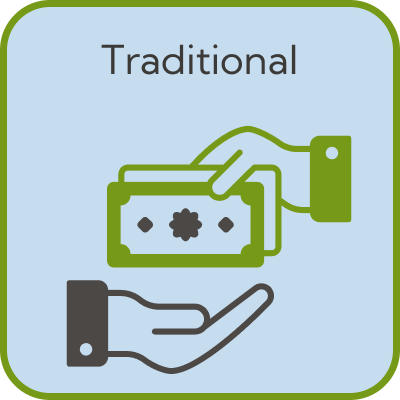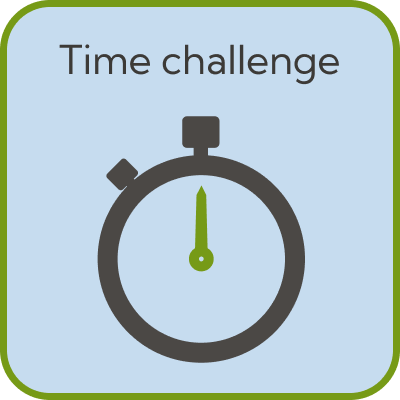Fundraise by participating in Self-organised longest continuous hand clapping challenge!
Self-organised longest continuous hand clapping challenge
Imagine pushing your limits not just for applause but for a good cause with a "Self-organised Longest Continuous Hand Clapping Challenge." This event is exactly as it sounds – you challenge yourself to keep clapping your hands for as long as possible. The simple, yet demanding nature of this activity makes it a perfect spectacle for raising funds and awareness for your chosen charity.
This event is a standout choice for charitable fundraising because it is easy to understand and engage with, both for you as a participant and for your audience. It doesn't require specialized equipment or venues, making it accessible and simple to get started. Additionally, the visual and auditory nature of continuous clapping can capture and hold people's attention, helping to boost live streams or video shares on social media. This can increase visibility and, in turn, donations.
To organize your hand clapping challenge effectively, start by selecting a charity and setting a clear goal for both your performance and fundraising. Communicate your intent and the cause you are supporting through all your networks and social media platforms to gather support. Choose a suitable, comfortable location with good acoustics to enhance the sound of your clapping. Make sure to have a timekeeper and a way to stream or record your attempt, as real-time validation can inspire more people to donate as they watch your progress.
For your fundraising strategy with Sponsivity, consider integrating a couple of different challenge types. The Time Challenge model is an obvious fit, as sponsors could pledge donations based on how long you can continue clapping. For example, a donation could be made for every minute you keep clapping past a certain milestone, such as ten, twenty, or thirty minutes.
Additionally, the Wager Challenge model could add an exciting twist. Set a fundraising threshold you aim to achieve before committing to undertake the clapping challenge for an exceptionally long target time. This can create suspense and anticipation, motivating potential donors to contribute towards your goal to see you take on a remarkably tough physical challenge.
Both models encourage active participation from your donors and provide an engaging narrative for your campaign, leading to potentially higher donations and greater impact for your chosen cause. Through this event, you harness not only the power of your physical endurance but also the collective power of your community, all rallying for a commendable cause.

Sponsivity offers you several ways to raise for Self-organised longest continuous hand clapping challenge


💪 Physical Endurance – A Test of Strength & Stamina for Charity
Physical endurance challenges are some of the most demanding and rewarding ways to raise money for charity. These events push fundraisers to their limits, whether through long-distance running, cycling, swimming, or multi-hour challenges, making them highly compelling for donors. The harder the challenge, the more supporters are inspired to give.
Why Physical Endurance Works for Fundraising:
- High Engagement: Donors love to support fundraisers who commit to extreme endurance challenges, seeing their dedication as a strong reason to give.
- Scalable & Inclusive: Endurance events can range from personal step challenges to Ironman triathlons, making them accessible for all fitness levels.
- Long-Term Fundraising Potential: The extended training and preparation period allow fundraisers to build momentum and keep donors engaged.
- Great for Time & Distance Challenges: Fundraisers can challenge themselves to beat a time, achieve a distance, or push beyond their limits for charity.
Examples of Physical Endurance-Based Fundraisers:
- Marathon or Ultra Run: “Help me raise £2,000 as I take on my first 100K ultra-marathon!”
- Long-Distance Cycle Challenge: “I’m cycling 1,000 miles across the UK for charity—sponsor me per mile!”
- Extreme Fitness Challenge: “I’m doing 24 hours of non-stop exercise—every donation pushes me further!”
Physical endurance fundraisers inspire, challenge, and motivate, creating an unforgettable experience for participants and a powerful reason for supporters to donate.
Set bespoke rewards that suit physical endurance
- Playlist pick - any song of your choice repeated 3 times on my playlist!
- Photo eating your chosen race snack (max 50g!)
- 20 press-ups after the finishline
🧠 Mental Challenge – Pushing Limits for a Good Cause
Mental challenges test focus, resilience, and determination, making them a unique and engaging way to fundraise. These challenges often involve problem-solving, endurance under pressure, or personal restrictions, such as memory feats, puzzle marathons, or digital detoxes. Fundraising through mental challenges allows participants to showcase their mental strength and discipline, inspiring supporters to donate.
Why Mental Challenges Work for Fundraising:
- Highly Inclusive: Unlike physical challenges, mental challenges can be attempted by anyone, regardless of fitness level.
- Great for Social Engagement: Challenges like chess marathons, escape room events, or language-learning goals are easy to share and track online.
- Endurance & Dedication: Tasks that test patience and willpower—like 24-hour challenges—demonstrate commitment, motivating donors to give.
- Unique & Entertaining: Creative challenges stand out, making them highly shareable on social media and drawing attention to the cause.
Examples of Mental Challenge-Based Fundraisers:
- Memory Challenge: “I’m memorizing 500 digits of Pi—sponsor me to support dementia research!”
- Endurance Puzzle Challenge: “Help me complete 10,000 Sudoku puzzles in a month for charity!”
- No-Talking or Digital Detox Challenge: “Support my 48-hour silent retreat—every donation helps my cause!”
Mental challenges showcase creativity, discipline, and perseverance, making them a fun and inspiring way to raise money while pushing personal limits.
Set bespoke rewards that suit mental challenge
- Join me in my challenge for 1 day
- Get defeated by me at chess online during the challenge
📅 Self-Organised – Fundraising on Your Terms
Self-organised fundraising challenges put you in control, allowing fundraisers to create a challenge that’s unique, personal, and tailored to their passions. Unlike organised events, self-organised challenges offer complete flexibility—whether it’s a solo endurance test, a creative personal challenge, or a community-driven activity.
Why Self-Organised Challenges Work for Fundraising:
- Full Flexibility: Choose the activity, location, and timing that works best for you, making fundraising accessible and achievable.
- Personal & Meaningful: Custom challenges allow fundraisers to connect with their audience by choosing something significant to them.
- Low-Cost & Inclusive: Without the need for event entry fees or logistics, anyone can participate, making it easy to involve family, friends, or colleagues.
- Perfect for Challenge Chain & Wager Models: Self-organised challenges can inspire others to join in, spreading the impact through viral nominations.
Examples of Self-Organised Fundraisers:
- Personal Running Challenge: “I’ll run 5K every day for a month—support my journey!”
- DIY Fitness Marathon: “I’m doing 1,000 push-ups in a day—every donation pushes me further!”
- Creative Challenge: “I’ll cycle across the country dressed as a superhero—help me hit my fundraising goal!”
Self-organised challenges allow fundraisers to turn their creativity, passions, and dedication into real impact, making it a powerful and accessible way to raise money for a cause.
Set bespoke rewards that suit self-organised event
- Rename the challenge in your honour
- Bring home-baked cookies to the finishline